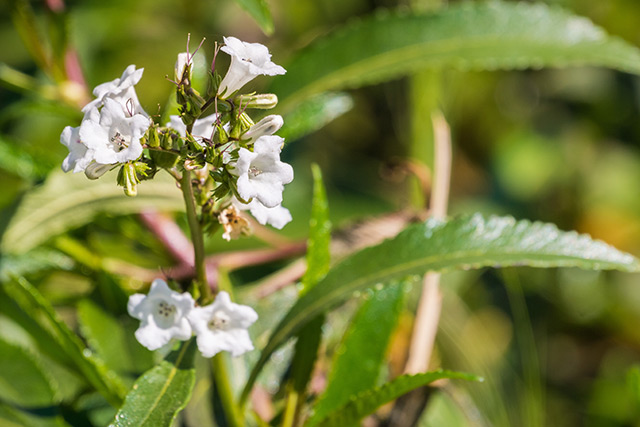Improving oral and brain health: Antioxidant-rich sage has amazing health benefits
09/23/2019 / By Melissa Smith

Sage (Salvia officinalis) has been used as an herbal medicine throughout the years. Also known as common sage and garden sage, this staple herb belongs to the mint family, alongside other herbs like basil, oregano, rosemary, and thyme.
This herb has a strong aroma and earthy flavor, which is why it is often used in small amounts. But no matter the amount, sage is naturally loaded with various nutrients and compounds that offer many health benefits.
Sage supports oral and brain health
One of the many health benefits of sage is its ability to support oral health. Sage has antimicrobial properties, which kill microbes that cause dental plaque. In a study published in the Iranian Journal of Microbiology, researchers evaluated the effects of a mouthwash containing sage extracts on Streptococcus mutans in school-age children. S. mutans bacteria are known to cause dental cavities. Those who used the sage mouthwash for 21 days experienced great reductions in the number of S. mutans in dental plaque. A lab study, which was published in the Asian Pacific Journal of Tropical Biomedicine, also showed that a sage-based essential oil can kill and stop the spread of Candida albicans, a fungus that may also cause cavities. Another review reported that sage may also treat throat infections, dental abscesses, mouth ulcers, and infected gums. However, more human studies are needed to make comprehensive recommendations.
Sage can also improve brain health in many ways. For one, it is packed with antioxidant compounds, such as caffeic acid, chlorogenic acid, ellagic acid, rosmarinic acid, and rutin – all of which have been reported to improve brain function and memory. Second, sage can suppress the breakdown of acetylcholine (ACH), a chemical messenger that is important in memory formation and retention. ACH levels also play a role in the development of Alzheimer’s disease. In one study, researchers examined individuals with mild to moderate Alzheimer’s disease who consumed 2 milliliters (mL) of a sage extract supplement or a placebo every day for four months. They found that those who took the sage supplement exhibited better performance on tests that measured problem-solving, memory, reasoning, and other cognitive abilities.
Sage is also beneficial to healthy adults. It can improve mood, alertness, and calmness, according to a study published in the journal Physiology & Behavior. (Related: Red sage protects against severe cerebrovascular disease.)
More reasons to have some sage in your pantry
Sage can support overall health in many ways. Here are other nutritional benefits of this staple cooking herb:
- Sage is packed with nutrients – One teaspoon or 0.7 g of ground sage can give you 10 percent of your daily vitamin K needs. Sage is also a good source of copper, magnesium, zinc, and vitamins A, C, and E.
- Sage lowers blood sugar levels – In traditional medicine, the leaves of sage are used as a remedy for diabetes. Human and animal studies also support that the herb may help reduce blood sugar levels by increasing insulin sensitivity.
- Sage reduces cholesterol levels – Having high blood cholesterol can put you at risk of heart disease. Studies have shown that sage and sage products can help lower low-density lipoprotein (LDL) or bad cholesterol. This cholesterol can build up in your arteries and damage them. In addition, sage can also increase high-density lipoprotein (HDL) or good cholesterol.
- Sage protects against some cancers – Animal and lab studies have suggested that sage may help prevent certain cancers, such as breast, cervix, colon, liver, kidney, mouth, and skin cancers. In these studies, researchers found that sage extracts both suppressed the growth of cancer cells and promoted apoptosis or cell death.
These are just some of the many health benefits of sage. To reap these benefits, consider adding sage to your diet. Since fresh sage leaves have a strong aromatic flavor, they are best used sparingly as a garnish on soups; mixed into a stuffing in roast dishes; or served with eggs in an omelet. Dried sage, which often comes ground or as whole leaves, can also be used as a rub for meats or a seasoning for roasted vegetables.
Sources include:
Tagged Under: alternative medicine, antioxidants, brain function, brain health, brain nutrients, disease treatments, food cures, food is medicine, functional food, herbal medicine, Herbs, memory, natural cures, natural medicine, oral health, prevention, research, sage, Salvia officinalis, Spices
RECENT NEWS & ARTICLES
COPYRIGHT © 2017 REMEDIES NEWS



















